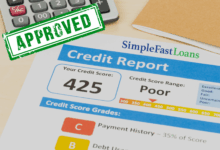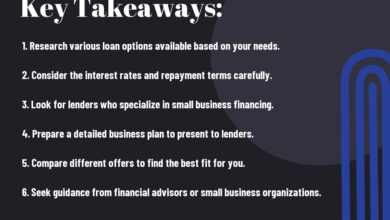Equity Loan: Understanding, Managing Risks, And Comparing Options
When it comes to financial decisions, the term ‘equity loan’ holds significant weight. Let’s dive into the intricacies of equity loans, exploring how to manage risks and comparing different options available.
From understanding Home Equity Lines of Credit to comparing Fixed-Rate and Variable-Rate Equity Loans, this comprehensive guide will equip you with essential knowledge to make informed decisions.
Understanding Home Equity Lines of Credit (HELOC)
A Home Equity Line of Credit (HELOC) is a type of loan that allows homeowners to borrow against the equity in their home. Unlike a traditional home equity loan, which provides a lump sum of money upfront, a HELOC acts more like a credit card where you can borrow funds as needed, up to a certain limit.
Process of Applying for a HELOC
- Applying for a HELOC involves submitting an application to a lender, providing documentation such as proof of income, credit history, and information about the property.
- Lenders typically consider factors such as the homeowner’s credit score, the amount of equity in the home, and the property’s market value when determining eligibility for a HELOC.
- Once approved, the homeowner can access funds as needed, making interest-only payments during the draw period before entering the repayment period.
When a HELOC Might be Preferable
- A HELOC can be a preferable option for homeowners who need flexibility in borrowing funds for ongoing expenses, such as home renovations or education costs.
- It can also be beneficial for individuals who want to have access to a source of emergency funds without having to pay interest on the full loan amount upfront.
- Additionally, a HELOC can be a good choice for those who have varying financial needs and want the ability to borrow funds as needed rather than in a lump sum.
Managing Risks Associated with Equity Loans
When taking out an equity loan, there are potential risks that borrowers need to be aware of and manage effectively to avoid financial hardship.
Identifying Potential Risks
- One risk of an equity loan is the possibility of defaulting on payments, leading to foreclosure on the home.
- Another risk is the potential for interest rates to increase, resulting in higher monthly payments that may become unmanageable for the borrower.
Strategies for Managing Risks
- To manage these risks, borrowers should carefully assess their financial situation and borrow only what they can afford to repay.
- Creating a budget and setting aside an emergency fund can help borrowers handle unexpected expenses and avoid defaulting on their equity loan.
Consequences of Defaulting on an Equity Loan
- Defaulting on an equity loan can result in the lender foreclosing on the home, leading to the loss of the property and a negative impact on the borrower’s credit score.
- It can also make it challenging to qualify for future loans or lines of credit, impacting the borrower’s financial future in the long term.
Comparing Fixed-Rate Equity Loans vs. Variable-Rate Equity Loans
When choosing between fixed-rate and variable-rate equity loans, borrowers need to consider the differences in interest rates, repayment terms, and potential risks associated with each option.
Differentiating Between Fixed-Rate and Variable-Rate Loans
- A fixed-rate equity loan has a set interest rate that remains constant throughout the loan term, providing predictable monthly payments.
- On the other hand, a variable-rate equity loan has an interest rate that can fluctuate based on market conditions, leading to potential changes in monthly payments.
Pros and Cons of Each Type of Loan
- A fixed-rate loan offers stability and predictability, making it easier for borrowers to budget and plan for repayments.
- However, a variable-rate loan may initially have lower interest rates, potentially saving borrowers money in the short term.
Comparison of Interest Rates and Repayment Terms
- Fixed-rate loans typically have higher interest rates compared to variable-rate loans but offer the benefit of consistent payments over time.
- Variable-rate loans may start with lower interest rates, but borrowers need to be prepared for potential rate increases that can impact monthly payments.
How Equity Loans Work
When it comes to obtaining an equity loan, there are specific steps involved in the process. Borrowers must provide certain documentation and adhere to a typical timeline to secure this type of financing.
Step-by-Step Process
- Initial Application: The borrower submits an application with their financial information, including income, credit score, and the amount of equity in their home.
- Home Appraisal: The lender will assess the value of the property to determine the amount of equity available for the loan.
- Loan Approval: Once the application is approved, the borrower receives the loan terms, including the interest rate and repayment schedule.
- Closing: The final step involves signing the loan documents and receiving the funds, typically within a few weeks of approval.
Interest Rates Determination
Equity loan interest rates are determined based on factors such as the borrower’s credit score, loan amount, and current market conditions. For example, as of [current date], fixed-rate equity loans have an average interest rate of [X%], while variable-rate equity loans have an average rate of [Y%].
Risks and Mitigation
Risks associated with equity loans include the potential for foreclosure if the borrower defaults on payments or if the property’s value decreases. Borrowers can mitigate these risks by ensuring they can afford the loan payments, maintaining the property’s value, and considering other financing options.
Fixed-Rate vs. Variable-Rate Loans
- Fixed-Rate Equity Loans: Offer stability with a consistent interest rate throughout the loan term, making budgeting easier for borrowers.
- Variable-Rate Equity Loans: Have fluctuating interest rates based on market conditions, offering the potential for lower initial rates but also the risk of higher payments in the future.
Comparison with Mortgage Loans
| Criteria | Equity Loans | Mortgage Loans |
|---|---|---|
| Eligibility | Based on home equity and credit score | Based on income, credit score, and property value |
| Interest Rates | Can be fixed or variable | Typically fixed |
| Repayment Terms | Shorter repayment periods | Longer repayment periods |
Equity Loan vs. Home Equity Line of Credit (HELOC)
When considering borrowing against the equity in your home, it’s important to understand the differences between an equity loan and a Home Equity Line of Credit (HELOC). Each option has its own advantages and disadvantages, and the choice between the two will depend on your specific financial situation and needs.
Differentiation
An equity loan, also known as a second mortgage, provides a lump sum of money upfront with a fixed interest rate and repayment term. On the other hand, a HELOC acts as a revolving line of credit that allows you to borrow funds as needed, similar to a credit card, with a variable interest rate.
Advantages and Disadvantages
- Equity Loan:
- Advantages:
Provides a large sum of money upfront
Fixed interest rate for predictable payments
- Disadvantages:
Interest is paid on the entire loan amount
No flexibility in borrowing additional funds
- Advantages:
- HELOC:
- Advantages:
Flexibility to borrow only what you need
Interest is only paid on the amount borrowed
- Disadvantages:
Variable interest rates can lead to unpredictable payments
Risk of overspending and accumulating more debt
- Advantages:
Examples of Beneficial Situations
- Use an equity loan if you need a large sum of money for a specific purpose, such as home renovations or debt consolidation.
- Opt for a HELOC if you anticipate ongoing expenses or want the flexibility to borrow funds as needed, like for college tuition or emergency expenses.
Using Equity Loans for Home Improvements
Homeowners often utilize equity loans to fund various home renovation projects, as it allows them to leverage the equity in their property. This can be a cost-effective way to increase the value of their home while enjoying the benefits of a newly renovated living space.
Maximizing the Value of an Equity Loan for Home Improvements
When considering using an equity loan for home improvements, it’s essential to compare interest rates offered by different lenders to ensure you are getting the best deal. Additionally, take into account any tax implications of using an equity loan for renovations and estimate the potential return on investment.
- Compare interest rates from different lenders to secure the most favorable terms.
- Consider the tax implications of using an equity loan for home improvements.
- Estimate the potential return on investment to ensure the renovation project adds value to your property.
Popular Home Improvement Projects Funded by Equity Loans
Some common home improvement projects that homeowners finance using equity loans include kitchen remodels, bathroom upgrades, and backyard landscaping. These projects not only enhance the aesthetics of the home but also increase its overall value.
Comparison Between Equity Loans and Other Financing Options
| Aspect | Equity Loans | Other Financing Options |
|---|---|---|
| Interest Rates | Typically lower due to secured nature of the loan | May vary depending on the type of financing |
| Flexibility | Can be used for a variety of purposes | May have restrictions on usage |
| Collateral | Secured against the equity in the property | May require additional collateral |
| Tax Deductions | Interest may be tax-deductible | Depends on the type of financing |
It is crucial to budget and plan meticulously before taking out an equity loan for home improvements to ensure the project stays within financial constraints and delivers the desired outcome.
Risks Associated with Equity Loans
Taking out an equity loan can be a beneficial financial move, but it also comes with its share of risks that borrowers need to be aware of before committing to this type of loan.
Interest Rate Fluctuations
One of the potential risks associated with equity loans is the fluctuation of interest rates. Since equity loans often have variable interest rates, borrowers may face higher monthly payments if interest rates rise. It is essential for borrowers to consider their ability to handle potential rate increases before taking out an equity loan.
Market Fluctuations
Another risk to consider is market fluctuations. The value of your home, which serves as collateral for the loan, may decrease due to economic factors or changes in the real estate market. This could result in owing more on the loan than the home is worth, known as being “underwater.”
Loan Default Consequences
If a borrower defaults on an equity loan by failing to make payments, there can be severe consequences. This includes a negative impact on credit scores, potential foreclosure on the home, and legal actions taken by the lender to recover the outstanding debt. It is crucial to understand the repercussions of defaulting on an equity loan before taking one out.
Mitigating Risks
To mitigate the risks associated with equity loans, borrowers should conduct thorough research before committing to a loan. It is essential to be aware of all associated fees, consider your financial stability, and explore alternative financing options. Maintaining a good credit score and having a stable income can also help reduce the risks associated with equity loans.
Comparison Table
| Factors | Equity Loans | Other Forms of Borrowing |
|---|---|---|
| Interest Rates | Variable rates, potential for fluctuations | Fixed rates, more predictable payments |
| Collateral | Uses home as collateral | May not require collateral |
| Risks | Foreclosure, credit score impact | Varies based on loan type |
| Benefits | Access to large sums of money | May have lower interest rates |
Tax Implications of Equity Loans
When it comes to equity loans, homeowners need to consider the tax implications that may arise. Understanding how equity loans can affect your taxes, including potential deductions or credits, is crucial for making informed financial decisions.
Tax Deductibility of Interest on Equity Loans
Interest paid on equity loans may be tax deductible, but there are specific criteria that must be met. In general, the interest on loans used for home improvements or renovations is typically tax deductible. However, interest on loans used for personal expenses, such as vacations or purchasing luxury items, is not eligible for tax deductions.
- Home Improvement Example: If you take out an equity loan to renovate your kitchen, the interest you pay on that loan may be tax deductible.
- Personal Expense Example: If you use an equity loan to fund a vacation, the interest on that loan would not be eligible for tax deductions.
Reporting Equity Loan Information on Tax Returns
Homeowners must accurately report information related to their equity loans on their tax returns. This includes providing details about the loan amount, interest paid, and the specific use of the loan funds. Failing to report this information correctly could result in penalties or audits from tax authorities.
Maximizing Tax Benefits with Equity Loans
To maximize tax benefits while using equity loans, homeowners can consider strategies such as timing payments or structuring the loan in a tax-efficient manner. For example, paying interest on the loan before the end of the tax year may increase the amount of deductible interest. Additionally, consulting with a tax professional can help homeowners navigate the complexities of tax implications related to equity loans.
Equity Loan Eligibility Requirements
When applying for an equity loan, there are certain eligibility requirements that borrowers must meet to qualify for this type of financing. Here, we will discuss the typical criteria, the impact of credit scores and income levels, tips for improving eligibility, documentation needed, debt-to-income ratio, the importance of home equity, acceptable credit score ranges, and a comparison of eligibility requirements for different types of equity loans.
Credit Scores and Income Levels
To be eligible for an equity loan, lenders will consider your credit score and income levels. A higher credit score typically increases your chances of approval, while a stable income demonstrates your ability to repay the loan. Lenders may have minimum credit score requirements, so it’s essential to maintain a good credit history. Similarly, having a steady income stream can positively impact your eligibility.
Improving Eligibility
To improve your eligibility for an equity loan, focus on maintaining a good credit score, reducing existing debts, and increasing your income. Paying bills on time, reducing credit card balances, and avoiding new debt can help improve your credit score. Additionally, increasing your income through additional sources of revenue or a higher-paying job can strengthen your financial profile.
Documentation and Debt-to-Income Ratio
When applying for an equity loan, you will need to provide documentation to prove your income levels. This may include pay stubs, tax returns, and bank statements. Lenders also consider your debt-to-income ratio, which compares your monthly debt payments to your gross monthly income. A lower debt-to-income ratio indicates a lower risk for lenders, increasing your chances of approval.
Home Equity and Loan Approval
The amount of equity you have in your home plays a crucial role in loan approval. Lenders typically require a minimum amount of equity to be eligible for an equity loan. The more equity you have, the more financing options may be available to you. Home equity is calculated by subtracting the outstanding mortgage balance from the current market value of your home.
Credit Score Ranges and Loan Types
Different types of equity loans may have varying credit score requirements. For example, a fixed-rate equity loan may have stricter credit score criteria compared to a home equity line of credit (HELOC). Acceptable credit score ranges vary by lender and loan type, so it’s essential to check with your lender for specific requirements.
Comparison of Eligibility Requirements
When comparing eligibility requirements for fixed-rate equity loans and HELOCs, consider factors such as credit score, income levels, debt-to-income ratio, and home equity. Fixed-rate equity loans may have more stringent eligibility criteria, while HELOCs may offer more flexibility based on your financial situation. It’s important to review the specific requirements for each loan type to determine the best fit for your needs.
Equity Loan Application Process
When applying for an equity loan, there are several steps that need to be followed to ensure a smooth and successful process. It is important to be prepared and have all the necessary documentation in order to expedite the application process.
Documentation Required for Equity Loan Application
- Proof of income: Recent pay stubs, W-2 forms, or tax returns
- Evidence of assets: Bank statements, investment account statements
- Debt information: Details of any outstanding loans or debts
- Property information: Documentation related to the property being used as collateral
- Identification: Driver’s license, passport, or other government-issued ID
Streamlining the Equity Loan Application Process
- Organize all required documentation in advance to avoid delays
- Complete the application accurately and provide all requested information
- Communicate promptly with the lender and respond to any queries or requests for additional information
- Be prepared for a home appraisal to determine the value of the property
- Understand the terms and conditions of the loan agreement before signing
Equity Loan Repayment Options
When it comes to repaying equity loans, borrowers have a few different options to choose from. Understanding the pros and cons of each can help you make the best decision for your financial situation.
Fixed-Rate vs. Adjustable-Rate Equity Loans
Fixed-rate equity loans offer a stable monthly payment amount throughout the loan term, making it easier to budget and plan for the future. On the other hand, adjustable-rate equity loans may start with lower interest rates but can fluctuate over time, potentially leading to higher payments in the future. Consider your financial stability and risk tolerance when deciding between the two options.
Tips for Managing Equity Loan Repayments Effectively
- Set up automatic payments to avoid missing due dates and late fees.
- Create a detailed budget to ensure you can comfortably afford your loan payments each month.
- Consider making extra payments when possible to pay off the loan sooner and reduce interest costs.
- Communicate with your lender if you experience financial difficulties to explore potential repayment options.
Using Equity Loans for Debt Consolidation
When it comes to managing multiple debts, using an equity loan for debt consolidation can be a viable option for some homeowners. By leveraging the equity in your home, you can combine all your high-interest debts into one loan with a potentially lower interest rate.
Advantages of Using Equity Loans for Debt Consolidation
- Lower Interest Rates: Equity loans typically offer lower interest rates compared to credit cards or personal loans, potentially saving you money in the long run.
- Simplified Repayment: Consolidating debt into one loan can simplify your monthly payments, making it easier to manage your finances.
- Potential Tax Benefits: In some cases, the interest paid on an equity loan used for debt consolidation may be tax-deductible. Consult with a tax advisor for guidance.
Disadvantages of Using Equity Loans for Debt Consolidation
- Risk of Losing Home: Since equity loans are secured by your home, failure to repay the loan could result in foreclosure.
- Extended Repayment Period: While consolidating debt can lower your monthly payments, it may also extend the time it takes to pay off your debts.
- Additional Fees: Be aware of any closing costs or fees associated with taking out an equity loan, as these can add to the overall cost of consolidation.
Scenarios Where Debt Consolidation Makes Financial Sense
- High-Interest Debt: If you have high-interest credit card debt, consolidating with an equity loan can save you money on interest payments.
- Multiple Debts: Managing multiple debts with varying due dates and interest rates can be challenging, making consolidation a convenient solution.
- Improving Credit Score: Consolidating debt and making timely payments can positively impact your credit score over time.
Equity Loan Interest Rates
When it comes to equity loans, interest rates play a crucial role in determining the overall cost of borrowing. Understanding how interest rates are determined and what factors can influence them is essential for borrowers looking to secure the best possible rate.
How Interest Rates for Equity Loans are Determined
Interest rates for equity loans are typically determined based on the prime rate set by the Federal Reserve, the borrower’s credit score, the amount of equity in the property, and the loan-to-value ratio. Lenders also take into account the current market conditions and the borrower’s financial history when setting the interest rate.
Factors Influencing Interest Rates on Equity Loans
Several factors can influence the interest rate on an equity loan, including the borrower’s credit score, the loan amount, the loan term, and the type of interest rate (fixed or variable). Additionally, economic conditions and the lender’s policies can also impact the interest rate offered to borrowers.
Tips for Securing the Best Interest Rate on an Equity Loan
– Improve your credit score before applying for an equity loan.
– Shop around and compare interest rates from different lenders.
– Consider a shorter loan term to potentially secure a lower interest rate.
– Negotiate with lenders to see if you can qualify for a lower rate based on your financial profile.
Comparison of Interest Rates from Different Equity Loan Providers
| Lender | Interest Rate |
|---|---|
| Lender A | 4.25% |
| Lender B | 4.50% |
| Lender C | 4.00% |
Real-Life Example of Negotiating a Lower Interest Rate
“After improving my credit score and comparing offers from different lenders, I was able to negotiate with my lender for a 0.5% reduction in the interest rate on my equity loan. This saved me thousands of dollars in interest payments over the life of the loan.”
Alternatives to Equity Loans
When considering financing options, it is crucial to explore alternatives to equity loans that may better suit your needs and financial situation. Evaluating options such as personal loans or credit cards can provide a clearer picture of the best choice for your circumstances.
Personal Loans
Personal loans are a common alternative to equity loans, offering fixed interest rates and structured repayment plans. They are unsecured, meaning you do not need to use your home as collateral. However, personal loans may have higher interest rates compared to equity loans, and the loan amounts may be limited based on your creditworthiness.
Credit Cards
Credit cards can also serve as a temporary financing solution for smaller expenses. They offer flexibility in terms of borrowing amounts, but typically come with higher interest rates compared to equity loans or personal loans. Using credit cards for major expenses may lead to accumulating high levels of debt if not managed responsibly.
Choosing the Right Option
When deciding between equity loans, personal loans, or credit cards, consider factors such as the amount of funds needed, interest rates, repayment terms, and the potential impact on your credit score. Assessing your financial goals and ability to repay the loan will help determine the most suitable financing option for your specific situation.
Equity Loan Regulations and Legal Considerations
When it comes to equity loans, there are specific regulations and legal considerations that borrowers need to be aware of before moving forward with the borrowing process. Understanding the regulatory framework and legal requirements is crucial to ensure compliance and protect your financial interests.
Regulatory Framework Governing Equity Loans
In the United States, equity loans are primarily regulated by the Truth in Lending Act (TILA) and the Home Ownership and Equity Protection Act (HOEPA). These laws require lenders to disclose important information about the loan terms, including interest rates, fees, and repayment details. It is essential for borrowers to carefully review these disclosures and ensure that they understand the terms of the loan before signing any agreements.
Legal Considerations for Borrowers
Before taking out an equity loan, borrowers should be aware of potential legal implications, such as the risk of foreclosure if they fail to make timely payments. It is important to understand the consequences of defaulting on an equity loan and the steps that lenders can take to recover their investment in case of non-payment. Additionally, borrowers should be cautious about potential scams or fraudulent practices in the equity lending industry and work with reputable lenders to avoid falling victim to financial exploitation.
Tips for Ensuring Compliance
– Thoroughly review all loan documents and seek clarification on any terms or conditions that are unclear.
– Compare offers from multiple lenders to ensure that you are getting the best possible terms and interest rates.
– Consult with a financial advisor or legal professional to get expert advice on the implications of taking out an equity loan.
– Avoid borrowing more than you can afford to repay and have a solid plan in place for making timely payments.
End of Discussion
As we conclude our exploration of equity loans, remember that being well-informed is key to making sound financial choices. Whether it’s for home improvements or debt consolidation, understanding the nuances of equity loans is crucial for financial stability.






